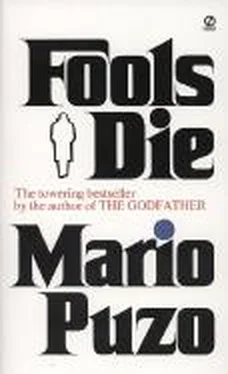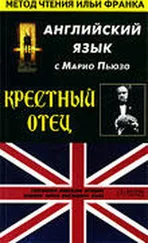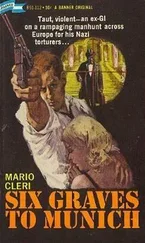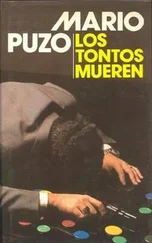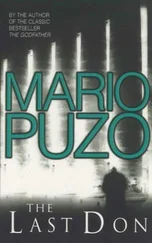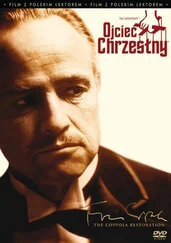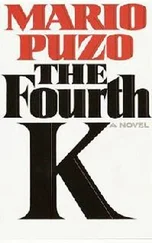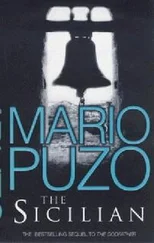Mario Puzo - Fools die
Здесь есть возможность читать онлайн «Mario Puzo - Fools die» весь текст электронной книги совершенно бесплатно (целиком полную версию без сокращений). В некоторых случаях можно слушать аудио, скачать через торрент в формате fb2 и присутствует краткое содержание. Жанр: Современная проза, на английском языке. Описание произведения, (предисловие) а так же отзывы посетителей доступны на портале библиотеки ЛибКат.
- Название:Fools die
- Автор:
- Жанр:
- Год:неизвестен
- ISBN:нет данных
- Рейтинг книги:3 / 5. Голосов: 1
-
Избранное:Добавить в избранное
- Отзывы:
-
Ваша оценка:
- 60
- 1
- 2
- 3
- 4
- 5
Fools die: краткое содержание, описание и аннотация
Предлагаем к чтению аннотацию, описание, краткое содержание или предисловие (зависит от того, что написал сам автор книги «Fools die»). Если вы не нашли необходимую информацию о книге — напишите в комментариях, мы постараемся отыскать её.
Fools die — читать онлайн бесплатно полную книгу (весь текст) целиком
Ниже представлен текст книги, разбитый по страницам. Система сохранения места последней прочитанной страницы, позволяет с удобством читать онлайн бесплатно книгу «Fools die», без необходимости каждый раз заново искать на чём Вы остановились. Поставьте закладку, и сможете в любой момент перейти на страницу, на которой закончили чтение.
Интервал:
Закладка:
After two years of living in my suburban house, writing ten hours every day, going to a movie once a month, reading everything in sight, I welcomed a call from Eddie Lancer asking me to have dinner with him in the city. For the first time in two years I would see New York at night. I had gone in during the day to talk over my magazine assignments with the editors, but I always drove home for dinner. Valerie had become a great cook, and I didn’t want to miss the evening with my kids and my final nightcap of work in my den.
But Eddie Lancer was just back from Hollywood, and he promised me some great stories and some great food. And as usual he asked me how my novel was coming. He always treated me as if he knew I was going to be a great writer, and I loved that. He was one of the few people I knew who seemed to have a genuine kindness untouched by self-interest. And he could be very funny in a way I envied. He reminded me of Valerie when she had been writing stories at the New School. She had it in her writing and sometimes in everyday life. It flashed out every once in a while even now. And so I told Eddie I had to go into the magazines the next day to get an assignment and we could have dinner afterward.
He took me to a place called Pearl ’s that I had never heard of. I was so dumb that I didn’t know it was New York ’s “in” Chinese restaurant. It was the first time I had ever eaten Chinese food, and when I told Eddie that, he was amazed. He did a whole routine introducing me to different Chinese dishes while pointing out the celebrities and even opening up my fortune cookie and reading it for me. He also stopped me from eating the fortune cookie. “No, no, you never eat them,” he said. “That’s terribly unsophisticated. If there’s one valuable thing you’ll get out of this night, it’s learning never to eat your fortune cookie in a Chinese restaurant.”
It was a whole routine that was only funny between two friends in the context of their relationship with each other. But months later I read a story of his in Esquire in which he used that incident. It was a touching story, making fun of himself making fun of me. I knew him better after that story, how his good humor masked his essential loneliness and estrangement from the world and the people around him. And I got a hint of what he really thought about me. He painted a picture of me as a man in control of life and knowing where he was going. Which amused the hell out of me.
But he was wrong about the fortune cookie business being the only valuable thing I would get out of that night. Because after dinner he talked me into going to one of those New York literary parties, where again I met the great Osano.
We were having our dessert and coffee. Eddie made me order chocolate ice cream. He told me that it was the only dessert that went with Chinese food. “Remember that,” he said. “Never eat your fortune cookie and always order chocolate ice cream for dessert.” Then offhandedly he asked me to come to the party with him. I was a little reluctant. I had an hour and a half drive out to Long Island, and I was anxious to get home and maybe get in an hour’s work before I went to bed.
“Come on,” Eddie said. “You can’t always be an uxurious hermit. Make a night out of it. There’ll be some great booze, good talk and some nice-looking broads. And you might make some valuable contacts. It’s harder for a critic to knock the shit out of you if he knows you personally. And your stuff may read better to some publisher if he’s met you at a party and he thinks you’re a nice guy.” Eddie knew that I had no publisher for my new book. The publisher of my first book never wanted to see me again because it had sold only two thousand copies and never got a paperback.
So I went to the party and met Osano. He never let on that he remembered that interview, and neither did I. But a week later I got a letter from him asking me if I would come in to see him and have lunch about a job he had to offer me.
Chapter 23
I took the job with Osano for many different reasons. The job was interesting and prestigious. Since Osano had been appointed the editor of the most influential literary supplement in the country a few years ago, he had trouble with people working for him and so I would be his assistant. The money was good, and the work wouldn’t interfere with my novel. And then I was too happy at home; I was becoming too much of a bourgeois hermit. I was happy, but my life was dull. I craved some excitement, some danger. I had vague fleeting memories of my running away to Vegas and how I had actually relished the loneliness and despair I felt then. Is that so crazy, to remember unhappiness with such delight and to despise happiness you hold in your hand?
But most of all, I took the job because of Osano himself. He was, of course, the most famous writer in America. Praised for his string of successful novels, notorious for his scrapes with the law and his revolutionary attitude toward society. Infamous for his scandalous sexual misbehavior. He fought against everybody and everything. And yet at the party where Eddie Lancer had taken me to meet him he charmed and fascinated everyone. And the people at the party were the cream of the literary world and no slouches at being charming and difficult in their own right.
And I have to admit Osano charmed me. At the party he got into a furious argument with one of the most powerful literary critics in America, who was also a close friend and supporter of his work. But the critic had dared voice the opinion that nonfiction writers were creating art and that some critics were artists. Osano swarmed all over him. “You bloodsucking cocksucker,” he shouted, drink balanced in one hand, his other hand poised as if ready to throw a punch. “You have the fucking nerve to make a living off real writers and then say you’re the artist? You don’t even know what art is. An artist creates out of nothing but himself, do you understand that, you fucking asshole? He’s like a fucking spider, the cobwebs are packed away in his body. And you pricks just come along and blow them away with your fucking housewife brooms after he spins them out. You’re good with a broom, you fucking jerkoff, that’s all you are.” His friend was stunned because he had just praised Osano’s nonfiction books and said they were art.
And Osano walked away to a group of women who were waiting to lionize him. There were a couple of feminists in the group, and he wasn’t with them two minutes before his group again became the center of attention. One of the women was shouting at him furiously as he listened to her with amused contempt, his sneaky green eyes glowing like a cat’s. Then he was off.
“You women want equality and you don’t even understand power plays,” he said. “Your hole card is your cunt, and you show it to your opponents face up. You give it away. And without your cunts you have no power at all. Men can live without affection but not without sex. Women have to have affection and can do without sex.” At this last statement the women swarmed over him with furious protests.
But he stood them off. “Women are complaining about marriage when they are getting the best bargain they will ever get in their lives. Marriage is like those bonds you buy. There is inflation and there is devaluation. The value keeps going down and down for men. You know why? Women become less and less valuable as they grow older. And then we’re stuck with them like an old car. Women don’t age as well as men. Can you imagine a fifty-year-old broad being able to con a twenty-year-old kid into bed? And very few women have the economic power to buy youth as men do.”
One woman shouted, “I have a twenty-year-old lover.” She was a good-looking woman of about forty.
Читать дальшеИнтервал:
Закладка:
Похожие книги на «Fools die»
Представляем Вашему вниманию похожие книги на «Fools die» списком для выбора. Мы отобрали схожую по названию и смыслу литературу в надежде предоставить читателям больше вариантов отыскать новые, интересные, ещё непрочитанные произведения.
Обсуждение, отзывы о книге «Fools die» и просто собственные мнения читателей. Оставьте ваши комментарии, напишите, что Вы думаете о произведении, его смысле или главных героях. Укажите что конкретно понравилось, а что нет, и почему Вы так считаете.
